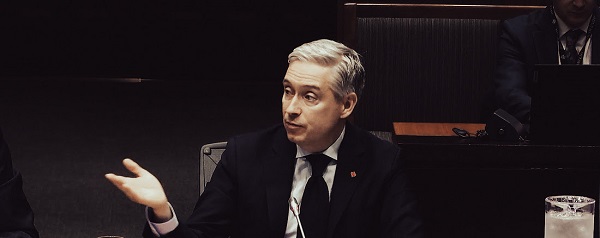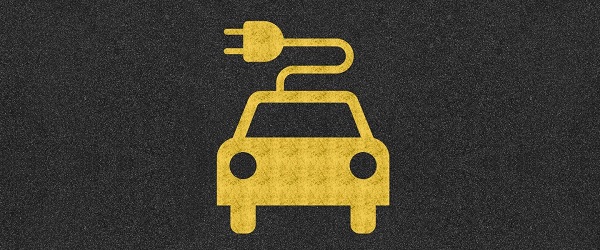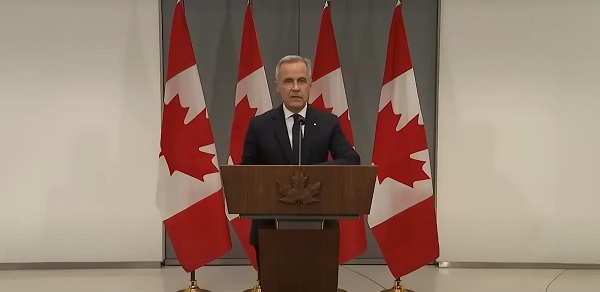Internet
Social media pushes pornography on children within minutes, report finds

From LifeSiteNews
A new report reveals social media platform TikTok’s algorithm directs 13-year-olds to explicit content within clicks
Social media is now one of the primary pipelines to porn addiction for both children and young adults.
Global Witness, a campaign organization that investigates the impact of Big Tech on human rights, recently conducted a number of tests to determine how quickly children could access pornography on social media platforms.
According to the Guardian, Global Witness conducted one test before the implementation of the U.K.’s Online Safety Act in July, and one after. In just a few clicks, TikTok directed children’s accounts to pornography.
“Global Witness set up fake accounts using a 13-year-old’s birth date and turned on the video app’s ‘restricted mode,’ which limits exposure to ‘sexually suggestive’ content,” the Guardian reported. “Researchers found TikTok suggested sexualised and explicit search terms to seven test accounts that were created on clean phones with no search history.”
I have seen similar tests conducted myself – a completely new account set up, with no history, and no algorithm as of yet – and highly sexual content was recommended within minutes. The Global Witness investigation found that the “you may like” feature for the children’s accounts included “very, very rude skimpy outfits,” “very rude babes,” and “hardcore” porn.
A few clicks later, the researchers reported, the pornographic content escalated from “softcore” pornography of bare breasts to hardcore pornography of “penetrative sex.” The group emphasized that “the content attempted to evade moderation, usually showing the clip within an innocuous picture or video. For one account, the process took two clicks after logging on: one click on the search bar and then one on the suggested search.”
Even more disturbingly, Global Witness reported that two of the videos appeared to feature minors; both were sent to the Internet Watch Foundation as potentially criminal online child sexual abuse material.” Ofcom, the U.K. communications regulator, stated that Global Witness’s report has prompted an investigation into potential breaches of the Online Services Act.
But parents should not wait for the government to step in. I have encountered countless young people who were first exposed to pornographic material on social media; many teenagers have told me that Instagram is a key on-ramp into pornography.
If they so much as pause for a fraction of a second as they scroll past a sexually explicit image, the pause is detected by the algorithm, and more sexual content is pushed into their feed. That content escalates in explicitness, and the algorithm almost literally reels them in with a conveyor belt of sexual imagery. Many young men who had successfully freed themselves from pornography have told me that going onto Instagram caused relapses into addiction.
Snapchat is no better. Pornography is easily accessible within five clicks without ever leaving the app. The National Centre on Sexual Exploitation has been urging parents to keep children off of Snapchat for years, and lists the social media app as one of the worst offenders on its annual “Dirty Dozen” list. Snapchat has consistently ignored warnings from lawmakers concerning the dangers of its app as a primary mechanism of sexting, sextortion, and worse offences.
Having spoken to thousands of teens on pornography, I can state that this abdication of responsibility has led to enormous misery, addiction, and genuine damage, during the formative developmental years.
As Tim Challies wrote years ago already when begging parents not to give their children smartphones: “Please don’t give them porn for Christmas.”
Censorship Industrial Complex
Hurting someone’s feelings could be punishable under Canadian hate crime bill: legal expert

From LifeSiteNews
Justice Centre for Constitutional Freedoms president John Carpay said that Bill C-9 in effect seeks to make it the law to ‘punish the emotion of hate.’
One of Canada’s leading constitutional law experts blasted a new Liberal “hate crime” bill as something that would “empower police” and the government to go after those it deems have violated a person’s “feelings” in a “hateful” way.
In a recent commentary piece posted by The Epoch Times, Canadian legal expert and lawyer John Carpay, founder and president of the Justice Centre for Constitutional Freedoms (JCCF), observed that the Liberals’ Bill C-9, or Combating Hate Act, is dangerous.
“Canada’s Criminal Code should punish bad behaviour, not bad feelings. Canadians need protection from crime, not from offensive opinions that might be considered ‘hateful’ by some but not by others,” Carpay wrote.
Carpay said that it seems the Liberals are “fixated on further criminalizing feelings of hatred that criminals may have had when carrying out their crimes.”
“Defining hate is near-impossible, as can be seen whenever politicians and judges attempt to do so,” he wrote.
Bill C-9 was brought forth in the House of Commons on September 19 by Justice Minister Sean Fraser.
The Liberals have boasted that the bill will make it a crime for people to block the entrance to, or intimidate people from attending, a church or other place of worship, a school, or a community center. The bill would also make it a crime to promote so-called hate symbols and would, in effect, ban the display of certain symbols such as the Nazi flag.
Bill C-9 reads, regarding what is deemed “hateful,” that “For greater certainty, the communication of a statement does not incite or promote hatred … solely because it discredits, humiliates, hurts or offends.”
Carpay said Bill C-9 “allows Canadians to express ‘disdain’ and ‘dislike’ without worrying about facing criminal charges, yet Canadians must be careful not to possess illegal emotions that involve ‘detestation’ or ‘vilification.’ It’s not ‘hate’ to discredit, humiliate, hurt, offend, and dislike people; it is “hate” to detest and vilify people. Are we clear?”
Carpay said that Bill C-9 in effect seeks to make it the law to “punish the emotion of hate,” noting how the reality is this “ignores” the reality that Canada’s judges are already “empowered to impose more severe penalties on hate-fueled criminals.”
The new bill increases the maximum penalty a judge can give to people convicted of crimes.
“If the judge decides that the convicted person’s emotions crossed from the legal territory of ‘disdain’ and ‘dislike’ into the crime of feeling ‘detestation’ or ‘vilification,’” Carpay noted.
This means that for a minor crime, where the maximum penalty is two years, a new “hate” crime offense could land someone in jail for up to five years.
“For the man convicted of a crime with a maximum penalty of five years in jail, if the judge determines that he possessed ‘hate’ in his heart, the judge can lock him up for 10 years instead of five,” Carpay stated.
“For more serious crimes, where the maximum penalty is 14 or more years in jail, if the judge thinks the convicted person was ‘hateful,’ the sentence can be imprisonment for life.”
The Liberals’ Bill C-9 has been blasted by the Canadian Conservative Party as a “dangerous” piece of legislation.
Conservative MP Leslyn Lewis warned it will open the door for authorities to possibly prosecute Canadians’ speech deemed “hateful.”
Carpay: Bill would ‘empower’ police, government
As it stands, Section 319(6) of Canada’s Criminal Code mandates consent of the nation’s attorney general before a person can be charged with a hate crime. Lewis and Carpay warned that Bill C-9 will eliminate this protection.
“Bill C-9 makes existing laws worse by empowering police to use the Criminal Code to impose their own subjective beliefs about what a police officer personally feels is ‘hateful.’ The bill does this by repealing an important safeguard that protects the free speech of all Canadians, namely the requirement that the attorney general consent to any prosecution for hate speech offences,” Carpay said.
He observed that the attorney general consent “safeguard,” as is the case now, has allowed hate speech prosecutions to proceed, “but only after a review by a higher authority.”
Fraser himself said that “by removing this step, law enforcement would be able to act quickly.”
Carpay noted how the bills promise to make it a “crime” to intimidate a church or place of worship, which is “not true.”
“It is already a crime to utter threats, intentionally provoke a state of fear in people, engage in physical contact (even in a minor way), and physically obstruct people from going about their business,” he wrote.
“Bill C-9 creates a duplicative and superfluous criminal offence of impeding access to a house of worship by intentionally provoking a state of fear; this conduct is already criminal under existing laws. By creating a redundant new law, Bill C-9 appears to be an exercise in virtue-signaling.”
Carpay also lamented how the bill mentions “rising antisemitism” but says nothing about the arson attacks on Catholic and Christian churches plaguing Canada.
“Anti-Catholic hate is obviously not on the minister’s radar. If it was, he would have mentioned it when introducing the Combatting Hate Act,” Carpay wrote.
“It goes to show how Bill C-9 is primarily about politics and appearances, even while undermining free expression in Canada.”
Since taking power in 2015, the Liberal government has brought forth many new bills that, in effect, censor internet content as well as go after people’s ability to speak their minds.
Business
Bill C-8 would allow minister to secretly cut off phone, Internet service

From the Canadian Constitution Foundation
“I worry that this law could be used to secretly cut off political dissidents from their phone or Internet service on the pretense that they may try to manipulate the telecom system”
The Canadian Constitution Foundation is concerned about the civil liberties implications of the Carney government’s proposed cyber security bill, C-8, which would allow the minister of industry to secretly order telecommunications service providers like Telus, Bell and Rogers to stop providing services to individual Canadians.
The minister would be allowed to make such an order if she has “reasonable grounds to believe that it is necessary to do so to secure the Canadian telecommunications system against any threat, including that of interference, manipulation, disruption or degradation.”
An individual who does not comply, including by failing to keep the order secret, could face fines of up to $25,000 for the first contravention and $50,000 for subsequent contraventions. Businesses could face fines of up to $10 million for the first contravention and up to $15 million for subsequent contraventions.
The orders would remain secret indefinitely, with the minister required only to present an annual report to Parliament on the number of orders made and her opinion on their necessity, reasonableness and utility.
CCF Counsel Josh Dehaas said that the power to cut off the Internet or cellphone service of Canadians is a “very serious power that requires very strong safeguards, which are presently lacking in the bill.”
“While this power may be necessary in some cases to prevent cyber attacks, it also poses serious risks to civil liberties,” Dehaas said. “I worry that this law could be used to secretly cut off political dissidents from their phone or Internet service on the pretense that they may try to manipulate the telecom system,” Dehaas explained. “Such an action would violate our most cherished freedoms including free speech.”
CCF Litigation Director Christine Van Geyn said that the government cannot be trusted with such a power unless proper safeguards are in place.
“You may think that the idea of the government cutting off political dissidents from the necessities of life sounds far-fetched, but that’s exactly what happened during the 2022 Freedom Convoy protests in Ottawa,” she said. “The federal government ordered banks to freeze hundreds of bank accounts without any judicial authorization, cutting protesters off from their money in the middle of a very cold winter.”
“Although the Federal Court agreed with the CCF that freezing bank accounts this way violated the constitutional right to be secure against unreasonable searches and seizures, that kind of damage isn’t easily repaired,” Van Geyn added.
Ottawa has appealed the Federal Court’s finding. The CCF is awaiting a decision from the Federal Court of Appeal.
Dehaas said that Parliament should consider requiring either judicial pre-authorization or an immediate, automatic judicial review of any decision to cut off an individual or business from their Internet or phone.
The CCF is also concerned that Bill C-8 would allow the minister to weaken telecommunications companies’ encryption standards, allowing for unconstitutional access to Canadians’ private information.
Finally, the CCF is concerned that the bill could allow the minister or any person designated by the minister to engage in unconstitutional searches.
Joanna Baron, the CCF’s Executive Director, said that Canadians must be vigilant about their constitutional rights and freedoms because they can be easily taken away, especially in times of crisis.
“I would encourage Canadians to fight for their freedoms, whether it’s by taking the CCF’s free privacy course, signing up for our weekly Freedom Update newsletter or becoming a monthly donor,” Baron said.
“Concerned Canadians are also encouraged to write to their MPs using our form letter, to tell them to amend these bills to ensure Canadians’ rights to privacy and free expression are protected,” Baron added.
-

 Business2 days ago
Business2 days agoFinance Minister ducks deficit questions, talks down to critics, and rebrands reckless spending as ‘transparency’.
-

 COVID-191 day ago
COVID-191 day agoConservative MP slams Freedom Convoy leaders’ sentencing as ‘political persecution’
-

 Business11 hours ago
Business11 hours agoCall for Federal Inquiry as Pressure Mounts for Release of Buried Report on Buddhist Land Transactions in PEI
-

 Automotive9 hours ago
Automotive9 hours agoGovernments continue to support irrational ‘electric vehicle’ policies
-

 COVID-192 days ago
COVID-192 days agoDevastating COVID-19 Vaccine Side Effect Confirmed by New Data: Study
-

 Business1 day ago
Business1 day agoGovernment distorts financial picture with definition of capital
-

 Haultain Research2 days ago
Haultain Research2 days agoInclusion and Disorder: Unlearned Lessons from Palestinian Protests
-

 Daily Caller20 hours ago
Daily Caller20 hours agoTrump Shares When Both Dead And Alive Hamas Hostages Are Expected To Be Released



